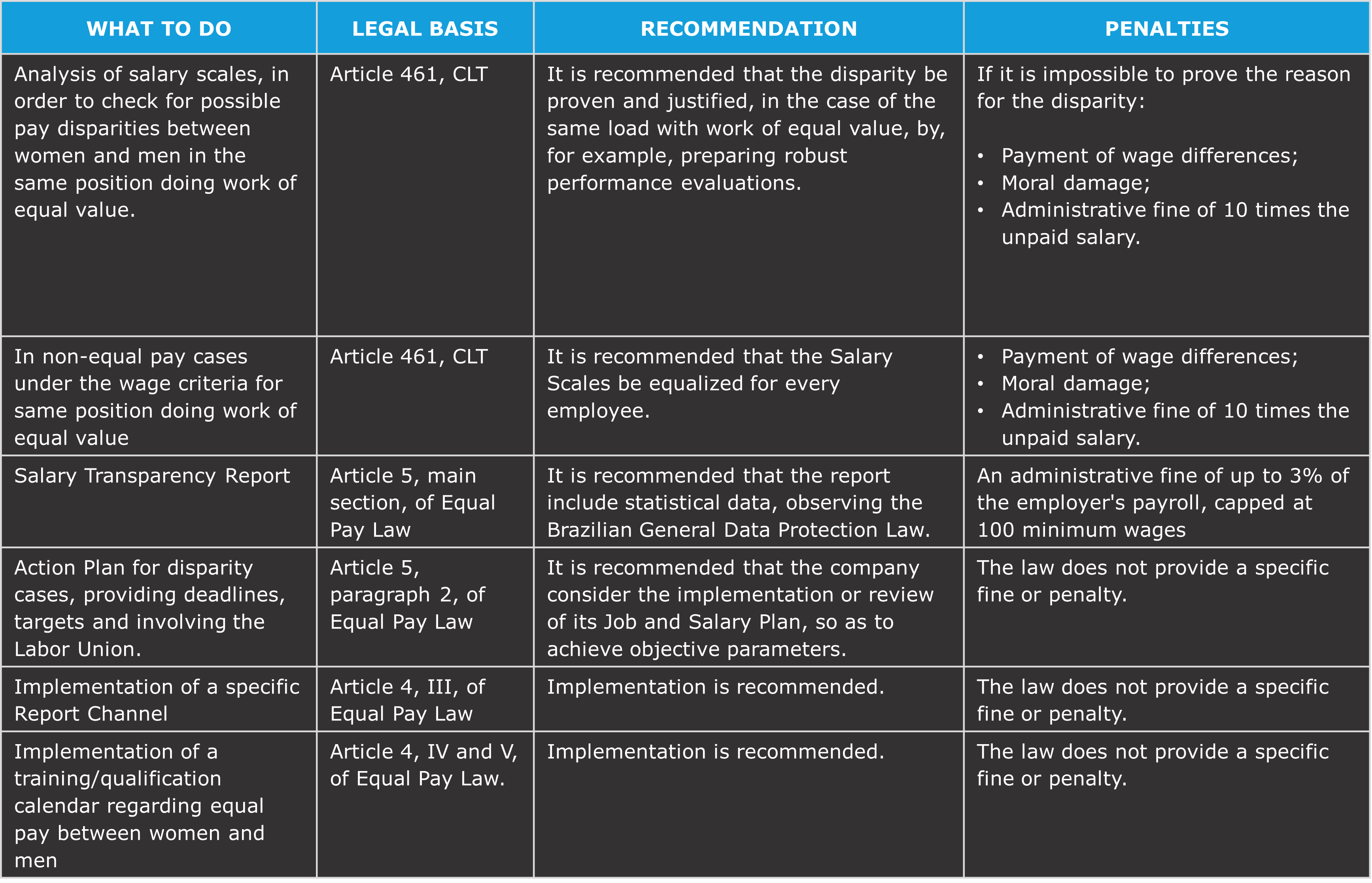Fostering gender equality in the workplace has been an essential journey for society and its progress. Cementing this commitment, Law 14,611/2023 emerges as a guiding example, underscoring the significance of pay equity and reinforcing measures to ensure this reality in a fair manner, particularly between genders.
The foundations of pay parity and the prohibition of discrimination in the job market were set in our legislation through the enactment of the Consolidation of Labor Laws (CLT) and Law 9,029/95. However, Law 14,611/2023 assumes a more robust stance, increasing the value of administrative fines and establishing compulsory measures, acting as a propellant for equity within companies.
Equal pay becomes a central pillar in the law, delineating remuneration criteria intended to level the disparities between women and men in roles that have identical value. Despite awaiting specific regulation, it sets a substantial framework in the battle against gender-based wage gaps.
By being universally applicable to all companies, regardless of size, the Law is all-encompassing. The concept of “equal value work” gains defined contours, considering parity in productivity and technical excellence, with reference to specific hiring periods.
By changing article 461 of the CLT, the new wording strengthens guarantees. In cases of discrimination based on sex, race, ethnicity, origin, or age, the discriminated employee not only receives due wage differences but is also safeguarded the right to seek compensation for moral damages, considering the specific details of each case. For violations, the Law introduces hefty fines, escalating in case of recurrence.
A striking feature of Law 14,611/2023 is the establishment of a Pay Equality Program. Companies are called to implement essential measures for promoting equity, including wage transparency, enhanced oversight, complaint channels, diversity programs, and training initiatives to bolster women’s participation in the labor market.
The disclosure of semi-annual reports on wage transparency and remuneration criteria is a cornerstone of the program. These reports, safeguarding personal data, allow for objective comparisons, and when inequalities are detected, companies are required to devise action plans with goals and deadlines, involving union and employee representatives.
It is imperative for companies to diligently comply with legal requirements, as non-compliance can result in substantial fines and financial damages. By rigorously adhering to the provisions of Law 14,611/2023, companies shield themselves from legal complications and build a fairer and more productive work environment, where gender equality is a core value.
Brazil, in its pursuit of reconstruction and transformation, is aligned with the UN’s Sustainable Development Goals through Law 14,611/2023. In this process, pay equity emerges as a milestone in labor justice, aiming for a more inclusive, developed, and equitable society, where all talents are valued and rewarded fairly.

